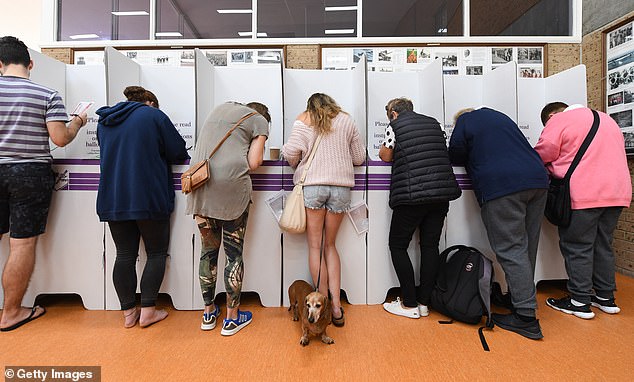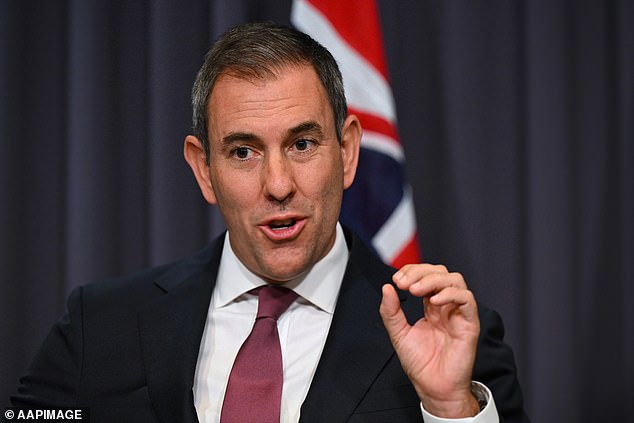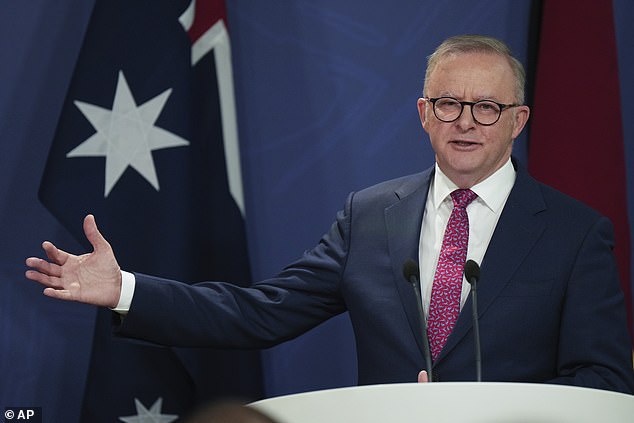The Labor Party has a delicate political decision to make: will it call an election before next year’s budget, set for April, or will it complete its term and go to the polls afterwards, sometime in May.
Opinions are divided over the impact yesterday’s release of year-end financial figures will have on their decision.
For his part, the Prime Minister probably hasn’t made up his mind yet. He will call you when he thinks he can win.
Yesterday’s results spell disaster for the economy. Next year’s budget will run a deficit of around $50 billion, making it harder for Labor to get out of political trouble come election time, even if it wanted to (and it does).
Promising more spending financed by even more debt does little to promote the government as a good economic manager.
But without electoral bribery, Labor could be in electoral trouble, suggesting it could go to the polls early, before the budget confirms Australia’s debt problems in a way that people will notice. The year-end fiscal update is not a headline-making political moment. A budget gets a lot more attention, which means it gets noticed, especially in an election year.
An early election risks making Labor look like the turkey that brings forward Thanksgiving. He is currently lagging in most opinion polls and arguably needs more time to build momentum for a political recovery that could give him a majority government.
There are other factors that the government must also consider. With all the signs suggesting that 2025 could be economically worse than 2024, the risk for Labor is that as the economy worsens, voters will lose patience with the government.
That would suggest that an early election is the least bad option for Albanese.
With all the signs suggesting that 2025 could be economically worse than 2024, the risk for Labor is that as the economy worsens, voters will lose patience with the government, PVO writes.

Albo’s best chance of success is to bite the bullet and do it early, perhaps even calling the election in time to get to the polls before Western Australia’s planned state election on March 8.
In this context, what happens in WA is an important consideration. At the moment Labor is doing better in the polls in the West than elsewhere, partly because the economy in WA is still doing well and partly because the WA Liberal Party is an embarrassment.
But the former can change quickly, especially as commodity prices continue to fall. WA’s economy is almost entirely dictated by the success or otherwise of the mining sector. If things start to change in the West, a number of seats that Labor currently hopes to retain could suddenly be up for grabs.
Going to the polls early protects against this risk.
Labor strategists will also be analyzing whether or not the Reserve Bank is likely to cut interest rates early in the new year. If that happens, the government will not want to seek re-election before such good news is announced. Rather, he will hope to move from an interest rate cut to an election, arguing that the change is proof positive of Labour’s sound management of reducing inflation.
For that to happen, elections would likely have to be held after the April budget.
Most economists will tell you that an interest rate cut is not likely early next year, although the U.S. Reserve’s overnight decision to cut rates for the third time this year has made a rate cut here is more likely.
Of course, with the political turn these days, it’s entirely possible that Treasurer Jim Chalmers thinks he can fool voters by delivering a new year’s budget with a $50 billion deficit but using the platform of delivering the budget. of next year. to obtain its second surplus.
How can that be? I hear you ask.
Budgets are supposed to focus on what will happen in the next financial year. This means that next year’s budget, approved in April, will focus on the financial year beginning July 1, 2025 and ending June 30, 2026.
But Chalmers and his circle of experts might think they can deliver next year’s budget by focusing almost entirely on the financial year in which the budget is delivered. That is, the financial year we are in now, which ends on June 30, 2025.

It’s entirely possible that Treasurer Jim Chalmers thinks he can fool voters by passing a new year’s budget with a $50 billion deficit, but using the platform of delivering next year’s budget to deliver his second surplus, he writes. PVO.
We already know that this financial year is in surplus, albeit a surplus that is being eroded almost daily through new spending initiatives announced by the Labor Party. Credit for that surplus was taken in the budget already delivered earlier this year.
But who’s to say he won’t try to do it again?
You can imagine it if you close your eyes: Chalmers will wake up next April and proudly declare that the budget is currently in surplus, news we already knew. Announce the updated figure at the same time as announcing spending commitments that will worsen next year’s results, but without even mentioning the coming deficits.
It’s a contradiction, no doubt, but Labor might expect voters to only hear these two bits of good news separately (a surplus and new spending). And the willingness of sections of the media in thrall to the Labor Party to uncritically report such misinformation cannot be underestimated.
Let’s add the likelihood that if next year’s budget is in bad shape, which we know it will be, reality will limit the Coalition’s willingness to make big spending commitments. You don’t want to be seen as so fiscally reckless.
Labor will be able to take advantage of this by running a fear campaign that, if the Liberals are elected, they will try to fix future budgets by cutting services like Medicare and the NDIS.
They are already making this argument. Chalmers ran that exact line of attack the other day.
So where does all this leave us? Weighing Albo’s options on when to call elections, the opposition believes he is more likely to make good on his promise to serve out his full term and pass next year’s budget as planned. Hoping to build on the momentum of budget week can allow a government to get off to a good start on the election campaign.
I’m not so sure about that. In my view, the lesser of Labour’s political evils is to call a snap election just after the summer holidays and try to get ahead of the worsening economic conditions expected as the year progresses. This way you can also go to the polls before Western Australia’s economy starts to slow down.
The Opposition would use a bad budget to argue that Labor should be thrown out after a single term. Reason in itself for Labor to act early to avoid such a risk.
Prime ministers are always nervous about calling early elections. If the polls are tight, they usually sit around hoping that something, somewhere, anything, can change things in time to help them fight back. A national security crisis, for example, or a scandal that hits the opposition.
However, these illusions are not a strategy for a government to choose its own destiny.
Albo’s best chance of success is to bite the bullet and do it early, perhaps even calling the election in time to get to the polls before Western Australia’s planned state election on March 8.


